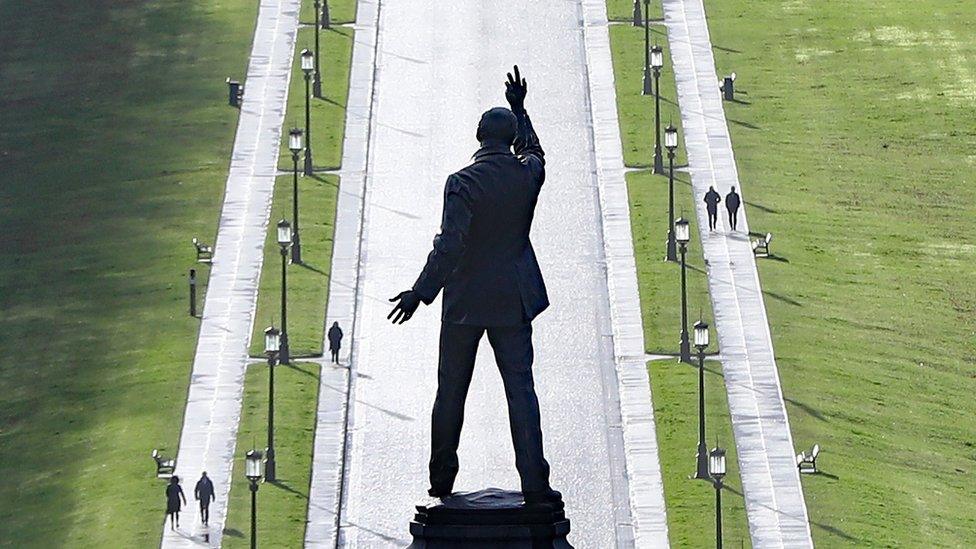Stormont: How has the NI Executive fared six months on?
- Published
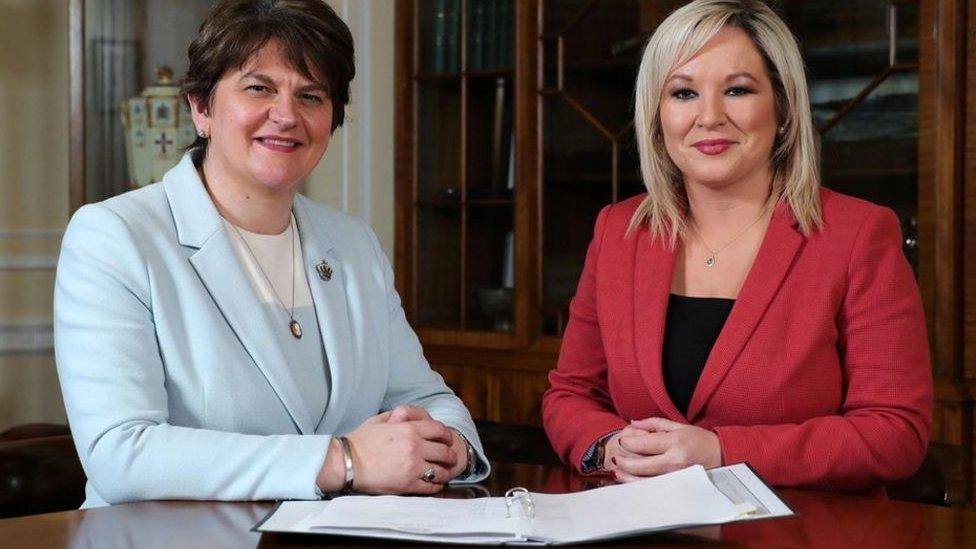
Appearing before a Stormont committee together in May, just months into heading up Northern Ireland's response to Covid-19, Arlene Foster joked that she and Deputy First Minister Michelle O'Neill had been seeing so much of each other, they were practically in the same household.
It was a light-hearted and unexpected moment from the first minister, given their parties had only agreed to return to government together in January after three years of bitter stalemate.
Sources close to Robin Swann recall that his first-day brief as the new health minister included notes on what his role would be in the event of a pandemic.
Two months later, the executive he sits on imposed an unprecedented lockdown across Northern Ireland while trying to present a united public health message and protect people from coronavirus.
Quite the challenge for a five-party executive only finding its feet again.
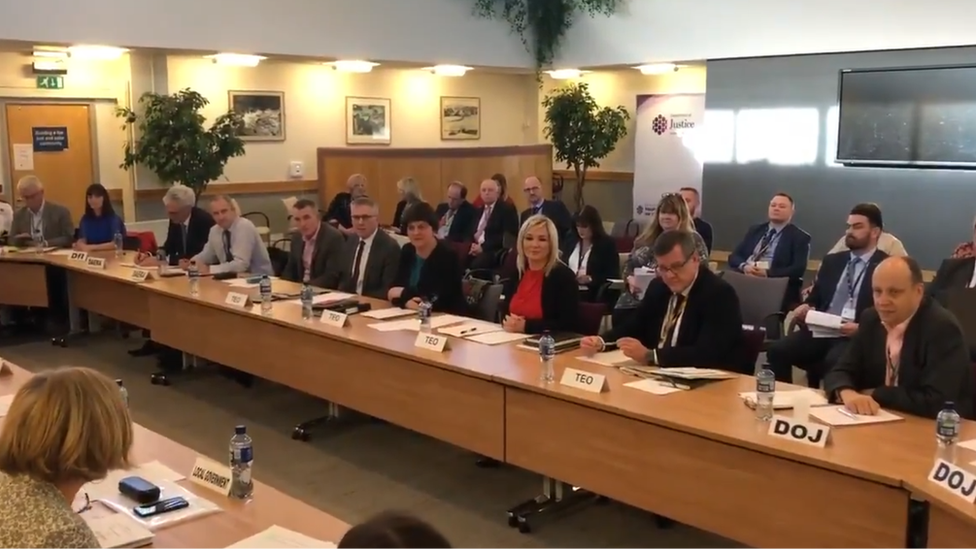
Ministers held emergency meetings as the realisation about the scale of the Covid pandemic took hold
Credibility of message 'damaged'?
The first couple of months of lockdown had their bumpy moments, with splits between Sinn Féin and other parties over the timing of school closures, the question of when to lift lockdown measures and calls for an all-island approach to tackling the virus.
However, the general consensus appeared to be that they were staying on message and joint press briefings from Ms O'Neill and Mrs Foster twice a week were watched by many.
Those conferences have been brought to an abrupt halt over the furore regarding the deputy first minister's attendance at the funeral of republican Bobby Storey.
Sinn Féin insists neither its vice-president nor other party members in attendance breached Covid rules, but the DUP leader said she could not stand at a podium next to Ms O'Neill when "credibility of the executive's messaging" had been damaged.
That being said, there is no sense this crisis will lead to an imminent collapse.
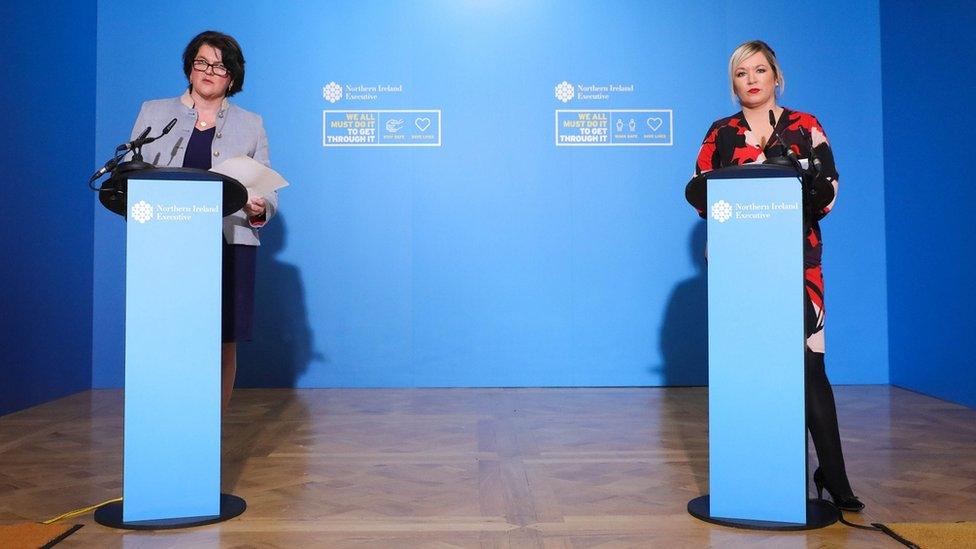
The last joint briefing from the first and deputy first ministers was on 29 June
Such is the unique set-up of Northern Ireland's political system that the biggest unionist and nationalist parties must share power together in the executive and the DUP has already insisted it will not walk out of Stormont, perhaps mindful that the public might not forgive another stalemate so soon after the last one, especially with a deadly and invisible virus still in our midst.
The stand off and political tensions will likely remain until the outcome of a police investigation and any other potential inquiries.
Some have drawn parallels with the lead-up to the collapse of Stormont in 2017, after the Renewable Heat Incentive (RHI) scandal led to the late Deputy First Minister Martin McGuinness taking Sinn Féin out of the executive he shared with the DUP.
New decade, same approach?
When the parties reached a deal to restore power-sharing six months ago, they pledged that any new administration would operate differently.
A public inquiry into what went wrong with the RHI scheme exposed failings regarding transparency and accountability within Stormont departments, as well as conduct of special advisers and civil servants.
So are things different now?
With the summer months upon us, a theoretical "school report card" for Stormont might show a mixed bag of results for the first term.
When it emerged that funding to continue free school meals for vulnerable children over the summer months had been held up briefly - due to a dispute between the DUP and Sinn Féin over the long-delayed Troubles pension - it appeared to some that old habits were beginning to leak through.
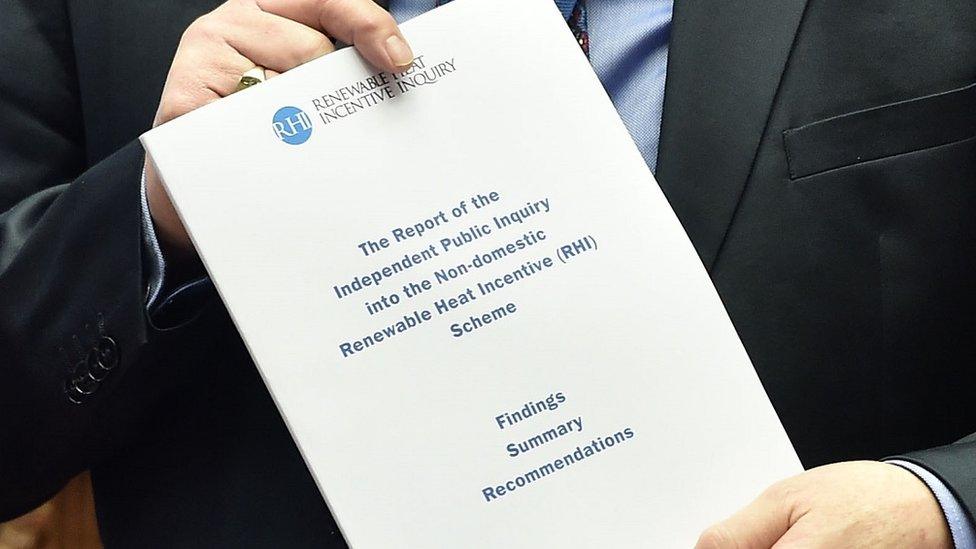
The RHI inquiry revealed failings in how Stormont parties and civil servants operated
In the wake of the RHI inquiry's findings, a new code of conduct for special advisers (Spads) took effect, but Traditional Unionist Voice leader Jim Allister has been trying to push legislation through Stormont that would put into statute tighter rules on Spads and the ministers who wield them.
However, the head of the civil service, David Sterling, previously told two Stormont committees that the first and deputy first ministers believe the issues dealt with by the bill would be better handled by new non-statutory codes of conduct.
Other challenges on horizon
While the assembly is set to make Paul Kennedy the new Standards Commissioner later this month to oversee the conduct of MLAs, there is no such process under way yet to appoint commissioners to oversee the conduct of executive ministers.
That pledge of a "robust" independent panel was contained in the New Decade New Approach deal, but the Executive Office says it hopes that competition can begin later this year.
Other challenges are dawning at Stormont too, not least Brexit which the DUP and Sinn Féin remain openly at odds on.
During last week's assembly debate on the motion calling for Michelle O'Neill and other Sinn Féin ministers to apologise for attending Mr Storey's funeral, the party's Stormont chief whip John O'Dowd remarked to the DUP benches that it was "as difficult for us to share power with you, as it is for you to share power with us".
Arlene Foster and Michelle O'Neill still share a political household, but right now it seems they are in separate wings of the house.
- Published11 January 2020
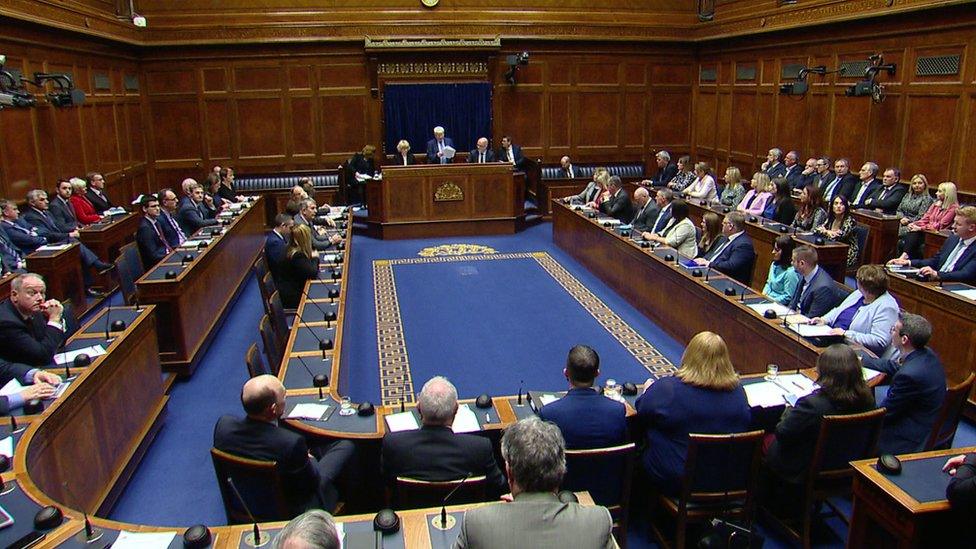
- Published10 January 2020
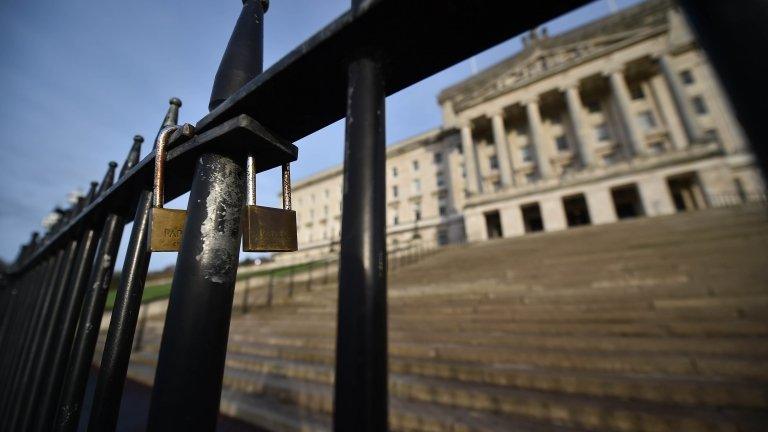
- Published10 January 2020
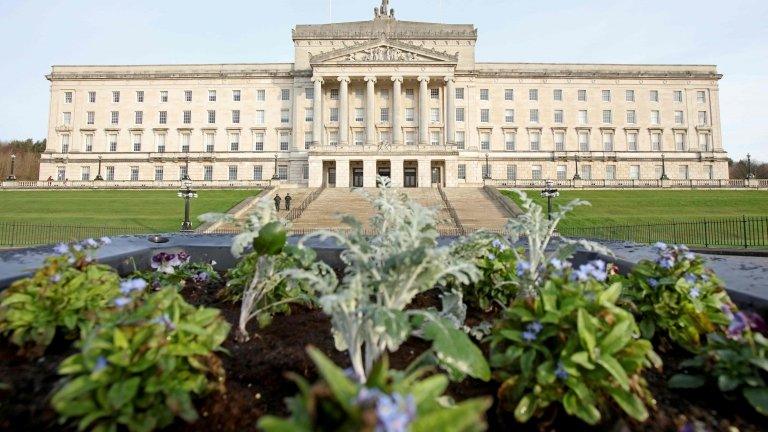
- Published9 January 2020
